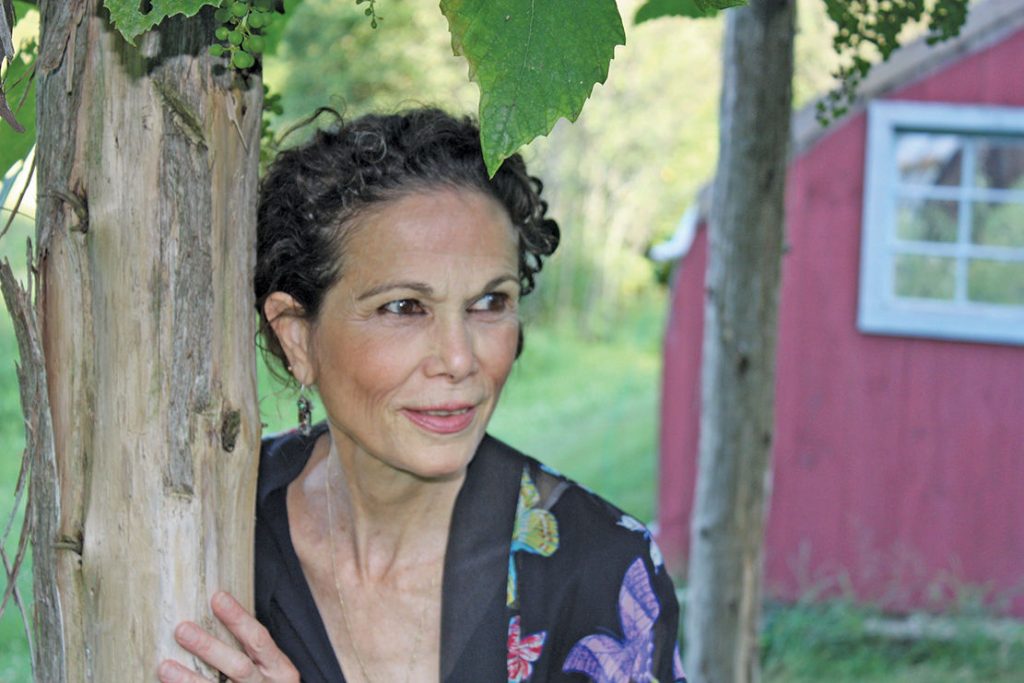Julia Alvarez read new poetry to a captivated audience at the Catholic Literary Imagination Conference (CLIC), held Feb. 19-21 through the Institute of Advanced Catholic Studies at the University of Southern California.
Dana Gioia, public intellectual and former Chair of the National Endowment for the Arts, describes Julia Alvarez as having a profoundly Catholic imagination.
Alvarez wrote a poem for the conference in which the speaker says, “I used to ask for signs / a great flashlight from the skies,” and “on more ambitious days / the stigmata.” The young teenage speaker talks of Jesus’ dreamy eyes, wishing he would call. But “he never rang / except in church bells.”
Alvarez describes herself as a bead amongst the people in her family. In her poem “Who To Ask,” the children in the extended family consider who to ask for candy or permission or notice; “Not La La, with her movie star smile” or the aunt with “hair like frothy frosting.”
In a large family, Alvarez remarked, you don’t belong to yourself. Your eyes are an aunt’s, your feet a great-grandfather’s. Body parts belong to the chain of relatives.
The importance of one’s place among the family’s generations is the foundational participation in community to which Christ calls. The earthly echo of the Communion of Saints is recognition of our place in a family tree.
“When I was born, my mother wrote me down / on the family tree, a second bough / dangling from her branch which was attached / to a great trunk which sunk down into roots / sprung from the seeds of Spain and Africa,” the speaker begins in the opening poem, “Family Tree,” collected in “The Woman I Kept To Myself.”
The book begins with seven tree poems, originally published in the limited edition art book, “Seven Tree: Poems by Julia Alvarez and Lithographs by Sara Eichner.”
“We have to live our natures out, the seed / we call our soul unfolds over the course / of a lifetime and there’s no going back / on who we are,” the speaker states in Alvarez’s poem, “Locust.” In another poem in the collection, a military airstrip is described “as if to clear a pathway up to God.”
“Poetry is about what you can’t put into words. It strives to say the unsayable in its incantation,” Alvarez explains.
The Mass, Catholic prayer, song and the sacraments are the initial and formative experiences of poets raised Catholic, a fact shared and celebrated throughout the conference by today’s great contemporary Catholic poets, including Alvarez, Gioia, Paul Mariana and Angela Alaimo O’Donnell.
In “All American Girl,” read by Alvarez, the speaker discusses the inescapable fact of her Dominican origins. “I couldn’t keep the southern continent out of / the northern vista of my eyes, or cut my cara / off to spite my face.”
Likewise, a writer raised with or converted to Catholicism is enriched by the worldview. “It seeps into the story,” Alvarez explains of her roots.
Writing, for Alvarez, is her vocation and she encouraged the audience to “find your calling.” It is, therefore, her responsibility to “be the best writer [she] can be” in order to answer the call.
In addition to rich literary discussions, I had the opportunity to chase after Alvarez: “Julia, are these your glasses?” It was a thrill to encounter a literary great of our time in an everyday moment that made tangible the tree branches connecting community.
I’d also like to think I saved St. Anthony a trip. Another poem in our great Catholic tradition: “Tony, Tony, please come down / something’s lost that must be found.”
The CLIC created an intimate and engaged community.

